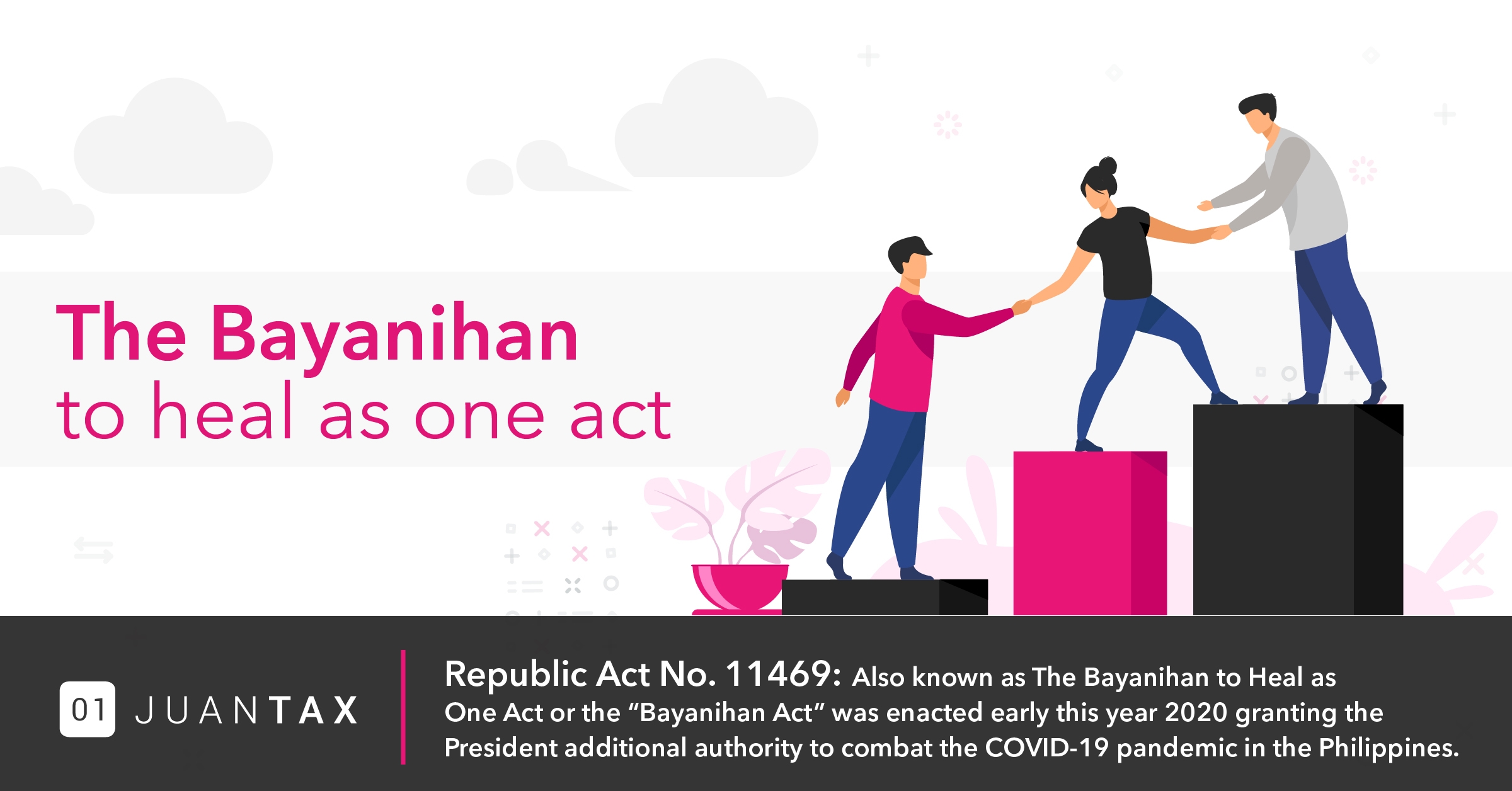“Bayanihan Act” was enacted early this year 2020 granting the President additional authority to combat the COVID-19 pandemic in the Philippines.

Republic Act No. 11469 also known as The Bayanihan to Heal as One Act or the “Bayanihan Act” was enacted early this year 2020 granting the President additional authority to combat the COVID-19 pandemic in the Philippines.
To support the public in this pandemic the Bureau of Internal Revenue (BIR) releases several revenue regulations to help the individuals and business owners with their own expenses and daily living. These Revenue Regulations (RR) Nos. 23, 24, and 25 were released last September 2020.
Under RR No. 23 – 2020, every sale, barter, exchange, or other disposition through an initial public offering (IPO) of shares of stocks in closely held corporations shall no longer be subject to the tax imposed under Section 127(B) of the Tax Code.
This regulation was released to encourage the public to invest in stocks without incurring any taxes.
Additionally, under RR No. 24 – 2020, for those cover all extensions of payments and/or maturity periods of all loans, including, but not limited to, salary, personal, housing, commercial, and motor vehicle loans, amortizations, financial lease payments, and premium payments, as well as credit card payments, falling due, or any part thereof, on or before December 31, 2020, was granted a one (1) time 60 days grace period.
Thus, all existing, current, and outstanding loans falling due on or before December 31, 2020, shall extend the maturity date for a period of 60 days without incurring any interest on interest, penalties, and other charges until December 31, 2020.
Therefore, if an individual has credit card payments that fall due on or before December 31, 2020, the maturity date will extend for an additional 60 days grace period.
Furthermore, the regulation also states the exemptions on Documentary Stamp Tax (DST) under Section of 179, 195, and 198 of the Tax Code.
So, if an individual or businesses needs to extend the term of their financial loans or their other credit restructuring, the borrower shall no longer be subjected to the DST under Section 179 which is Stamp Tax on all Debt Instruments, Section 195 which is Stamp Tax on Mortgages, Pledges, and Deeds of Trust and lastly, Section 198 which is Stamp Tax on Assignment and Renewal of certain instruments. Provided that, loans fall due on or before December 31, 2020.
In addition to the above relief, the BIR releases another revenue regulation for business entities. This regulation is the RR No. 25 – 2020 which covers the deduction from gross income of the Net Operating Loss Carry-Over (NOLCO) incurred by businesses or enterprises for taxable years 2020 and 2021 pursuant to Section 4 (bbbb) of Republic Act (R.A.) No. 11494.
Unless otherwise disqualified from claiming the deduction, the business or enterprise which incurred a net operating loss for taxable years 2020 and 2021 shall be allowed to carry over the same as a deduction from its gross income for the next five (5) consecutive taxable years immediately following the year of such loss.
So, if the entity incurs losses for the taxable years 2020 and 2021 the net operating loss can be carried over as a deduction on gross income for the next five (5) years if the succeeding years resulted in a net income. That is for the calendar year.
However, if the company is running the business on a fiscal year basis and the business incurs losses for the fiscal year ending June 30, 2021, and June 30, 2022, the net operating loss can be carried over as a deduction on gross income for the next five (5) years if the succeeding years resulted to a net income.
This regulation was released by the BIR to help business entities incur fewer taxes for the next five succeeding taxable years.
In conclusion, the above said revenue regulations were released mainly to help the individual and business owners to lessen their taxes while the pandemic is still going on not only in the country but also globally.










